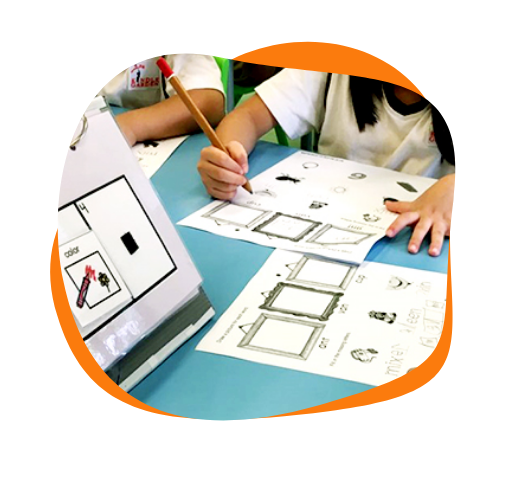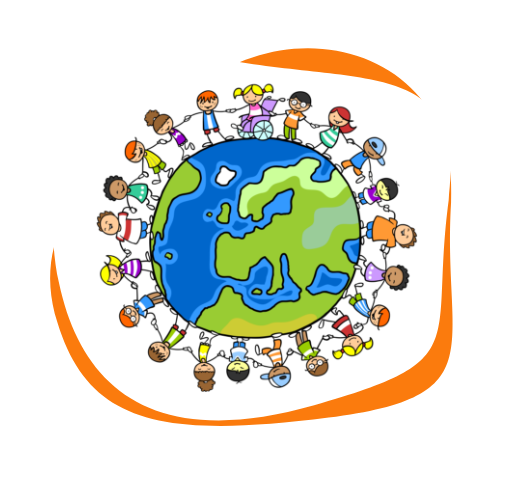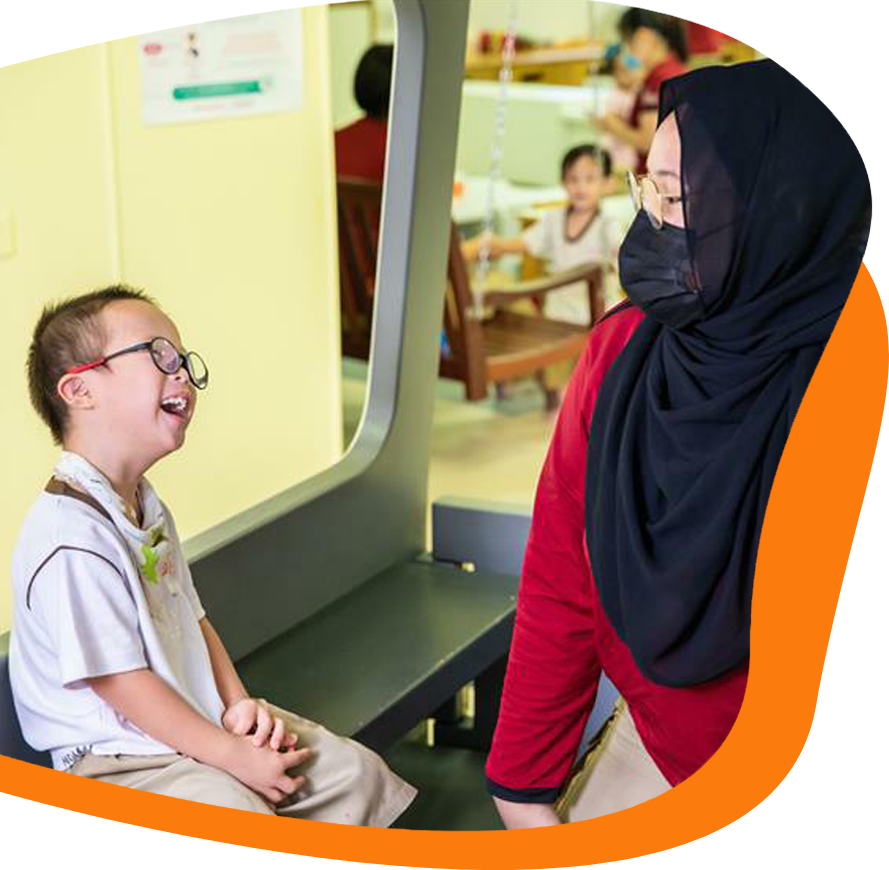
It Helps All Children
In an unpredictable and fast-evolving world, all children deserve to be nurtured with the qualities to thrive and grow amid the changes and challenges. Teamwork, creativity, empathy and resilience will be key.
Promoting inclusion in preschools and schools where children start to learn and grow is the first step towards creating a society where every person is celebrated for their strengths and empowered to reach their full potential.

Better academic performance
Studies have also shown that both children with additional needs and those without do better academically in an inclusive setting. Teachers have to engage in differentiated teaching in an inclusive environment, and this means that teaching is tailored to different learning styles and speeds, which benefits all children in a class, not just those with identified needs.

Improve socio-emotional development
Students with additional needs who are educated in an inclusive setting are more accepted by their peers, have better social relationships, are less lonely, and exhibit fewer behavioural problems. Typically developing children in inclusive learning environments develop more compassion, positive attitudes towards persons with disabilities, and belief in the value of diversity.
It Creates a Better Society
The goal of education is to create productive members of society. In a country where people are our only resource, we need to empower every child to reach their full potential. By honing the life skills they will need, we prepare them for success in the future economy. Some of these life skills include:

Teamwork &
Collaboration
with diverse sets of people

Creativity &
Resourcefulness
The ability to think outside the box and beyond the obvious limitations

Empathy,
EQ & CQ
A strong foundation of mental health, self-worth, resilience, and the ability to relate to others
Social Policy Shifts
Students with additional needs who are educated in an inclusive setting are more accepted by their peers, have better social relationships, are less lonely, and exhibit fewer behavioural problems. Typically developing children in inclusive learning environments develop more compassion, positive attitudes towards persons with disabilities, and belief in the value of diversity. This is being recognised in educationaly policy both internationally and in Singapore.

The international movement towards inclusive education
“Inclusive schools are the most effective means of combating discriminatory attitudes, creating welcoming communities, building an inclusive society and achieving education for all. Moreover, they provide an effective education to the majority of children and improve the efficiency and ultimately the cost-effectiveness of the entire education system.”
– The UNESCO Salamanca Statement

Singapore’s commitment to inclusive education
In December 2016, the Compulsory Education Act was extended to include children with additional needs. This means that children with moderate to severe additional needs will need to attend publicly-funded schools, just like all other in children in Singapore, unless their parents apply for
an exemption.
Research and current practices already point to how inclusive education is both possible and beneficial in developing these skills. With its inherent focus on respecting and celebrating individual strengths, children nurtured in inclusive educational settings are empowered to reach their potential and contribute to societal progress.
VIEW RELATED RESEARCH

Inclusive education is a powerful way to enrich children’s lives and learning
In an inclusive educational setting, we see the value of learning to live together and
- The beauty of mixed-ability communities
- The richness of environments that offer a space for people of varying cultures and abilities
- The patience, generosity and joy that such communities foster in children, which will eventually impact the communities of the future as these children grow into adults.
For us, education is about nurturing holistic individuals. Most of this work is done in mixed-ability educational settings. In an inclusive community, compassion, patience, creativity and perseverance develop and thrive. These qualities remain and enable us to live well, even after we have forgotten the facts and figures learnt during our days at school.
Inclusion
Starts with I
Each one of us holds a shared responsibility when it comes to fostering an inclusive environment for everyone. Join us in our mission to promote and create more inclusive environments in communities across Singapore.



